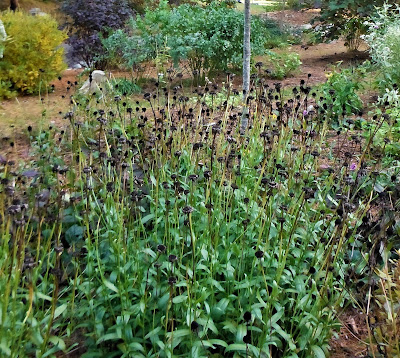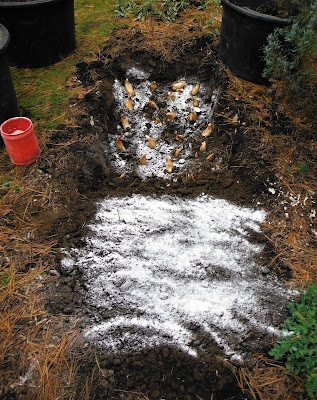The traditional advice for cleaning up your perennial garden in October was to cut everything to the ground. Science – and common sense based on observation – says that practice took away a valuable food source for both migrating and over-wintering birds. Instead, leave up the flower stalks with seed heads birds. Migrating birds appreciate the food. And it is vital for those species that over-winter in New England. In addition to less work for you, the birds make your garden a more interesting place throughout the winter. The ‘no-cut’ policy isn’t universal, though. Always vigorously clean up any plant that has battled disease this year. Again, you’ll save yourself work and enjoy your garden more in the spring.
Wednesday, October 28, 2020
Thursday, October 22, 2020
Remove Potatoes Before There’s a Hard Frost
Dig them out carefully and then brush off soil, but do not wash them before storing. And keep them out of the light. Potatoes do best if allowed to cure for a couple of weeks in a cool, dark place. Place newspapers under them while the skin hardens. Do not try to store any that have nicks or bruises; instead, use them immediately.
Wednesday, October 14, 2020
Bulbs
Your tulips should be in the ground now, and small bulbs such as crocus, snowdrops, and grape hyacinth should be going into the ground by mid-month. Hold off planting daffodils until later in the month. To keep squirrels and other varmints from digging up and eating your bulbs, dust them with lime as you put them into the ground, and then add a layer of lime on top of the planted area. The lime interferes with smelling the bulbs, and is an important in ‘sweetening’ the soil for these plants that come from a part of the world with much less acidic soil. If you have very aggressive rodents, add hot pepper or chili powder to bulb coating.
Wednesday, October 7, 2020
Don’t Count on Rainy Weather
New England is going into the autumn with a rain deficit of as much as nine inches in some areas. The map tells the story – and the contrast with last year when we were only ‘abnormally dry’. What to do? If your soil feels dry down several inches, water any trees and shrubs that will need the water over the winter. So as not to waste water, set your hose up to slowly deliver the right amount (one to five gallons depending on the size of the plant) rather than spraying the entire garden. You can also use a bucket or other container to slowly deliver the right amount of water to the plant’s roots. As you take care of this immediate need, think critically about your plantings to see if you have any water hogs that could be replaced with less demanding plants next spring.



